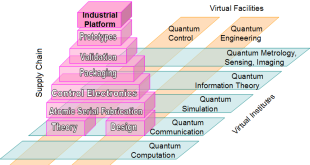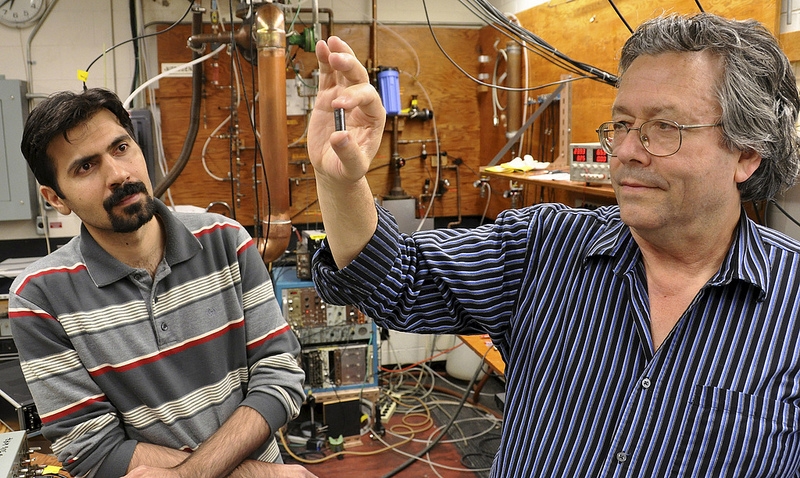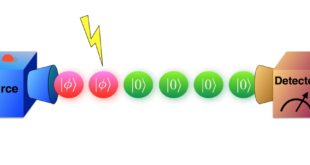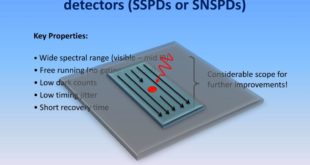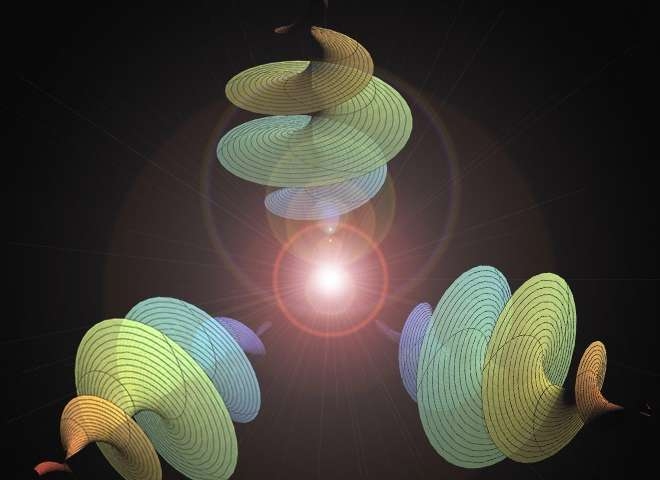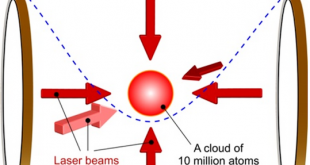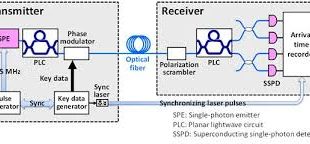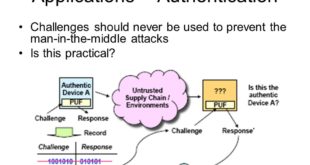Traditionally, quantum science has been a domain of fundamental research explored mostly by physicists. At the current state of the art the basic properties of the systems considered for realizing quantum hardware are understood at a great level of detail. Now, it becomes increasingly more important to develop quantum systems which …
Read More »New Manufacturing technologies paving the way for Silicon or Solid-state quantum computing
Quantum bits, or qubits, are the basic building blocks of quantum computers, just as bits are that of modern computers. Researchers around the world have been exploring a range of different physical systems to act as qubits, including trapping and isolating ions by using electromagnetic fields, photons trapped in microwave …
Read More »Quantum Thermometer can measure temperatures inside a quantum computer to living cell
The world, say many experts, is on the verge of a second quantum revolution. The most talked-about of such technologies is the quantum computer, a device in theory so powerful that it could crack the codes underlying internet security in just a few minutes. But full-scale quantum computers are still …
Read More »Graphene Bolometers emerging as high speed and sensitive Quantum photon detectors for quantum computation and quantum communication
Measurement connects the world of quantum phenomena to the world of classical events. It has both a passive role—in observing quantum systems—and an active one, in preparing quantum states and controlling them. In quantum physics, a measurement is the testing or manipulation of a physical system in order to yield …
Read More »DARPA’s DETECT developed Single photon detector (SPD) for quantum computers, communications, and submarine detection
The process of detecting light—whether with our eyes, cameras or other devices—is at the heart of a wide range of civilian and military applications, including light or laser detection and ranging (LIDAR or LADAR), photography, astronomy, quantum information processing, medical imaging, microscopy and communications, including underwater Blue-Green communications. Detection of …
Read More »Quantum Hyper Entanglement is a key enabler for high-capacity quantum communications, teleportation, processing and imaging
The extraordinary promise of quantum technology—depend on quantum “entanglement,” in which the physical states of two or more objects such as atoms, photons or ions become so inextricably connected that the state of one particle can instantly influence the state of the other—no matter how far apart they are. Today, …
Read More »UK thrust on Quantum sensors including Quantum accelerometer for future accurate Navigation of submarines and missiles
Sensor technology vital for UK critical national infrastructure is becoming outdated, warn experts at the University of Birmingham-led UK Quantum Technology Hub Sensors and Timing. The current weakness threatens anticipated advances, many involving quantum technologies, across different sectors – including climate change, defence, transportation, energy supplies and healthcare. The warning …
Read More »Graphene enables room temperature single photon emitter and detector for unhackable Quantum Key Cryptography (QKD)
Quantum Key Distribution, or QKD, enables two remote parties, “Alice” and “Bob”, who are connected by a passive optical link to securely generate secret key material. Single-photon sources (SPSs) and single-photon detectors (SPDs) are key devices for enabling practical quantum key distributions (QKDs). Single photon generation is necessary for secure quantum transmission; …
Read More »Threats of hacking of digital IDs, driving develpment of unbreakable Quantum EPUF IDs containing 1,000 trillion atoms
We live in digitised, connected societies, in an Internet of Things (IoT) world where our reliance on software, hardware, and the networks that connect us, grows exponentially. Our increasing global reliance on what we hope and assume are secure networks, is profound. The threat of large-scale cyber-attack has become a …
Read More »Scientists solving major challenge of decoherence in turning quantum technology from potential to reality
‘The development of a “quantum computer” is one of the outstanding technological challenges of the 21st century. A quantum computer is a machine that processes information according to the rules of quantum physics, which govern the behaviour of microscopic particles at the scale of atoms and smaller. Quantum computers gain …
Read More » International Defense Security & Technology Your trusted Source for News, Research and Analysis
International Defense Security & Technology Your trusted Source for News, Research and Analysis
